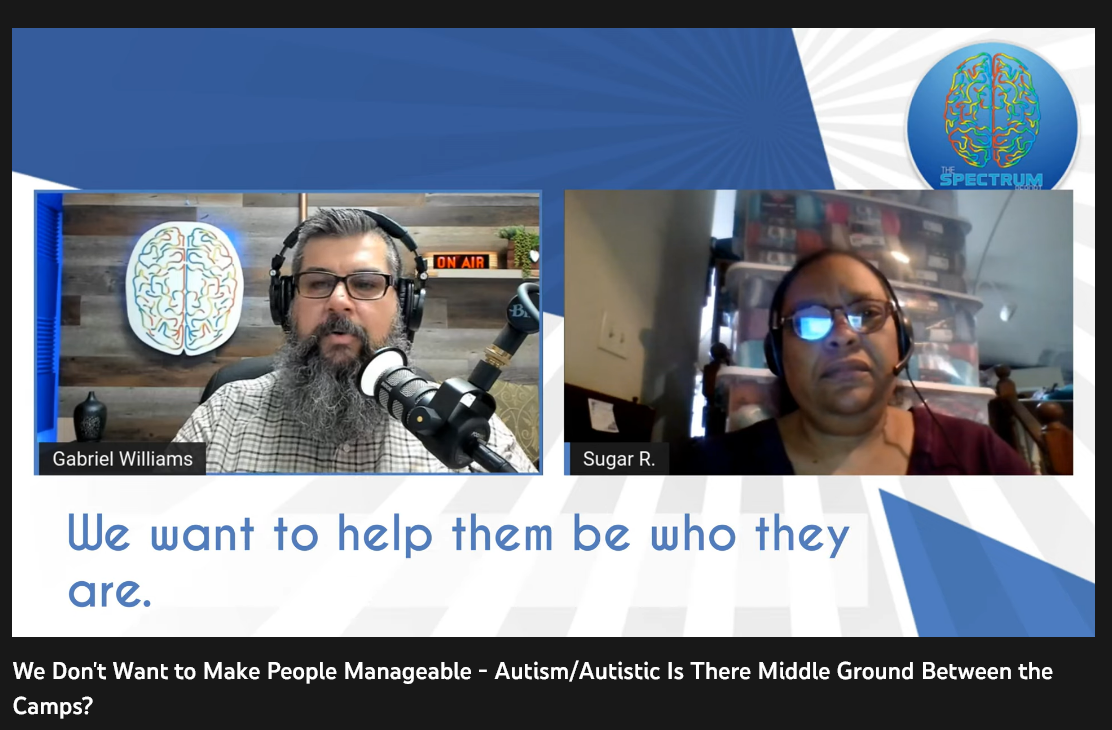Parenting
Sugar's daughter loves Neural Balance because it helps her but it doesn't change her. We don't see autism as a defect, but we do understand that anxiety, poor sleep, sensory overload, lack of focus, and many of the difficult attributes of autism (and PANS, MTHFR, ADHD, etc.) can make life more difficult than it needs to be.
On and off the Spectrum, life is easier when a person can deal with anxiety, get a healthy night's sleep, process sensory stimuli, and focus on the task at hand. We see the positives and the negatives of autism/being autistic so we simply want to offer support and help where needed without changing the person or turning them into a zombie.
Watch the video up here ⬆️ or listen to the podcast right here ⬇️ Join my guest Jennifer Kozek as we talk about depression in younger kids and teens: How to recognize the warning signs and what to do about it.
By nature, kids aren’t the best communicators when it comes to their feelings. It takes time along with trial and error to learn how to express negative emotions in healthy ways. Plus, most people would agree that they aren’t always perfect when it comes to dealing with their own anxiety. Kids with behavioral problems often struggle with anxiety. However, parents can be left scratching their heads wondering why their kids are acting out without realizing that anxiety could be the source of the behavior. Here are ways that anxiety often shows up in disruptive behavior in kids.
Oppositionality
Sometimes, kids may suddenly refuse to clean up after playing, refuse a learning activity, or just seem to not know any word other than “no” without any apparent reason. You may notice behavior or language that seems to have no purpose other than getting under your skin. These perplexing moments are understandably met with frustration, but there is often more happening under the surface. Whether or not your child has Oppositional Defiant Disorder will be determined by a professional, but these sorts of moments are also commonly caused by spikes in anxiety. Take the extra time to ask your child what if anything is making them anxious and look for stressors if they can’t seem to identify the source of their anxiety.
Meltdowns
Children with autism or sensory processing disorder can often display behavior that looks and sounds like a tantrum when feeling anxious. Other kids may also have meltdowns when they are feeling anxious for reasons related to sights, sounds, or smells around them. Sometimes, a tantrum is simply a tantrum and you should follow through with your system of discipline and rewards. However, if there seems to be no reasonable explanation for a tantrum, such as if there is nothing clear that they are trying to gain or they typically behave well in the situation, they could be having a meltdown from anxiety.
Aggression
Whether it’s something small such as angrily throwing an item or blatantly aggressive actions like hitting, aggressive behavior should always be taken seriously and dealt with as soon as possible. This type of behavior can be especially frustrating, but it’s important to remain patient to figure out why the aggressive behavior is happening. One of the most common reasons for child aggression is anxiety. Sensory overload, external stressors, anxious thought patterns, or physical factors can all manifest themselves in aggressive behavior in kids.
Of course, you should always address the behaviors themselves by not rewarding poor behavior but be sure to recognize when there are signs of anxiety in order to find the best natural ways to deal with anxiety. Being direct with your kids about talking about their feelings will go a long way in preventing some of the guesswork.
Look for ways to model healthy coping skills for your kids while also encouraging healthy coping skills like mindfulness, physical activity, art, and yoga. You should also consider how natural supplements can help your child feel calm and find the options that work best. There are also plenty of ways that changing your child’s diet can help them feel calm as well.
Don’t get discouraged if you notice disruptive behaviors in your kids. Discover the best ways your child can feel calm in order to help them thrive. Neural Balance contains the patented ingredient Anandanol, and supports natural calm and focus, natural social interaction, and normal sleep patterns. View our products to find out more about how Neural Balance can help your family.












